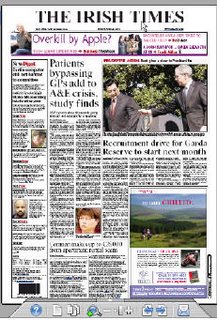Although criticized by some for politicizing an event that has taken place annually at the White House since the Rutherford B. Hayes administration, organizers said their actions were not a protest, but a chance "to give our fellow citizens the opportunity to see us as real families, participating in a great American tradition..."
That effort, wrote Givhan, put the gay and lesbian participants "in the difficult position of wanting to underscore the averageness of their families, while simultaneously and quietly identifying themselves as a group that is different."
Their solution, she reported, was to reject initial plans to wear t-shirts identifying them as LGBT parents and families and, instead, wear rainbow leis.
A T-shirt [wrote Givhan] is fashion's equivalent of a billboard. They are not subtle or nuanced, boiling a complicated issue down to a few words, a symbol or a slogan. (Silence = Death. A peace sign. Choose Life.) T-shirts are not a tool for dialogue or diplomacy. They are not a gentle form of persuasion.The result, according to Givhan, was mixed: "The symbolism of a T-shirt is loud. It's braying. It's in people's faces. Those leis were polite, but they also mumbled the message."
Accessories such as necklaces, rubber bracelets or satin ribbons, on the other hand, whisper one's affiliation, mumble something about ideology, politely request support through all the proper channels. Thank you very much. And please, sir, will you hear me out?





